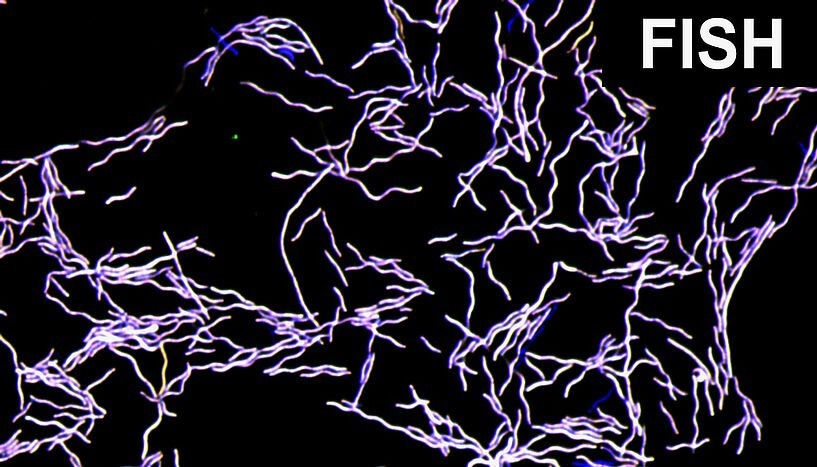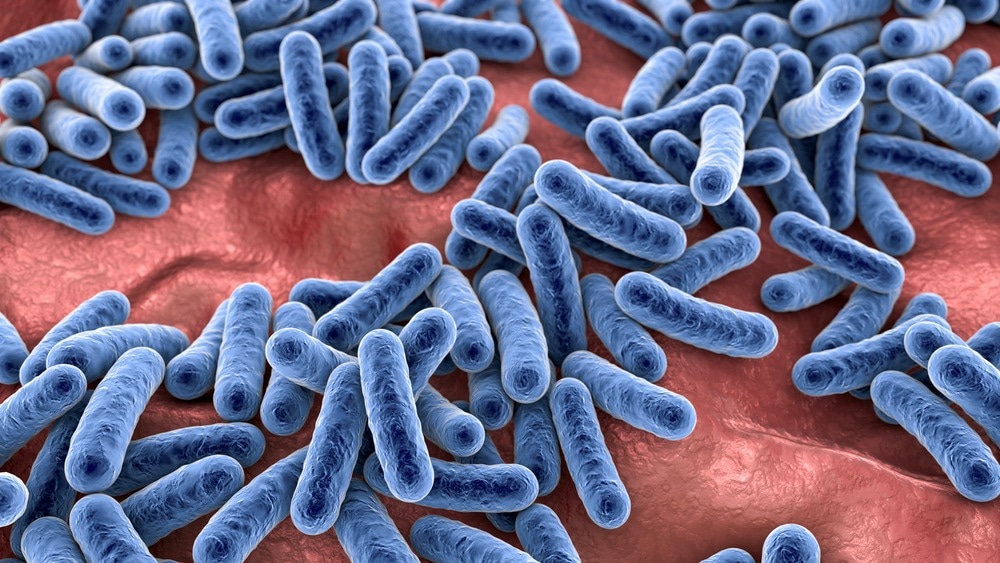Reviewed by Danielle Ellis, B.Sc.Sep 19 2023
An international team of scientists led by University of Vienna microbiologist Alexander Loy identified a novel intestinal microbe that feeds only on taurine and creates the foul-smelling gas hydrogen sulfide. The researchers have therefore added to the current understanding of those microbial mechanisms that have intriguing consequences on health.
 FISH: Fluorescence microscopy of Taurinivorans muris in pure culture. Image Credit: Huimin Ye
FISH: Fluorescence microscopy of Taurinivorans muris in pure culture. Image Credit: Huimin Ye
This also applies to Taurinivorans muris, a bacterium that has protective properties against Salmonella and Klebsiella, two significant pathogens. The findings have just been released in Nature Communications.
What is That Smell?
Numerous mechanisms exist through which the gut microbiota affects human health. One of these methods is by boosting the quantities of hydrogen sulfide, the poisonous gas that causes foul-smelling farts.
Small levels of hydrogen sulfide in the gut are beneficial; in fact, it is necessary for many physiological activities and can even protect from infections. To hinder the colonization of oxygen-dependent infections like Klebsiella, hydrogen sulfide-producing microorganisms in the gut may help “choke out” these pathogens.

Image Credit: Kateryna Kon/Shutterstock.com
However, high amounts have been linked to intestinal lining damage and gut inflammation, which can have severe effects. A crucial initial step in creating therapeutic approaches, such as those for inflammatory bowel disease, is identifying the key players and processes that create this toxic gas within the gut.
Keeping Young: The Role of Taurine
One of the most vital human taurine utilizers is the microbe Bilophila wadsworthia. In the current study, scientists at CeMESS, the Centre for Microbiology and Environmental Systems Science at the University of Vienna, under the direction of Alexander Loy, have found a new species of bacteria that produce hydrogen sulfide in the mouse intestine.
The bacterium we described has a rather unbalanced diet it specializes in consuming taurine.”
Alexander Loy, Microbiologist, University of Vienna
Taurine is a semi-essential amino acid that the liver produces in modest amounts. However, humans acquire the majority of their taurine from foods, particularly meat, dairy, and seafood.
Taurine, like hydrogen sulfide, is involved in a wide range of physiological activities. Recent research has shown a relationship between taurine and healthy aging; it appears that this nutrient could help prevent age-related disorders. In light of these discoveries, the discovery of a novel gut bacterium that only feeds on taurine (aptly named Taurinivorans muris) is yet another fascinating jigsaw piece.
By isolating the first taurine degrader in the mouse gut, we are one step closer to understanding how these gut microbes’ mediate animal and human health.”
Huimin Ye, Study Lead Author and Former PhD Student, University of Vienna
Taurinivorans muris, on the other hand, need the assistance of other gut microorganisms to liberate taurine from bile acids. Taurine-containing bile acids are created in the liver and are gradually released into the gut following a high-fat meal to aid in fat digestion. The actions of bacteria in the colon affect bile acid metabolism in the liver.
As a result, the findings of the Viennese researchers will result in a deeper understanding of these intricate interactions in bile acid metabolism, which affects processes and diseases throughout the body.
Taurine Degrading Microbes Protect Against Pathogens
One of the most significant activities of symbiotic microbes in the gut is pathogen defense. The microbiome has a diverse arsenal of defensive mechanisms, one of which is the use of taurine to produce hydrogen sulfide.
Ye added, “Hydrogen sulfide may suppress the oxygen-dependent metabolism of some pathogens.”
The current study discovered that Taurinivorans muris protects against Klebsiella and Salmonella, two key gut bacteria.
Loy stated, “The protective mechanism of Taurinivorans muris against pathogens may be via hydrogen sulfide but is essentially not yet fully understood.”
One of the most significant factors in the generation of hydrogen sulfide in the intestine is taurine. To create new microbiome-based drugs, the study therefore produces fundamental knowledge about the physiological connections between the various gut microorganisms and their hosts.
Source:
Journal reference:
Ye, H., et al. (2023). Ecophysiology and interactions of a taurine-respiring bacterium in the mouse gut. Nature Communications. doi.org/10.1038/s41467-023-41008-z